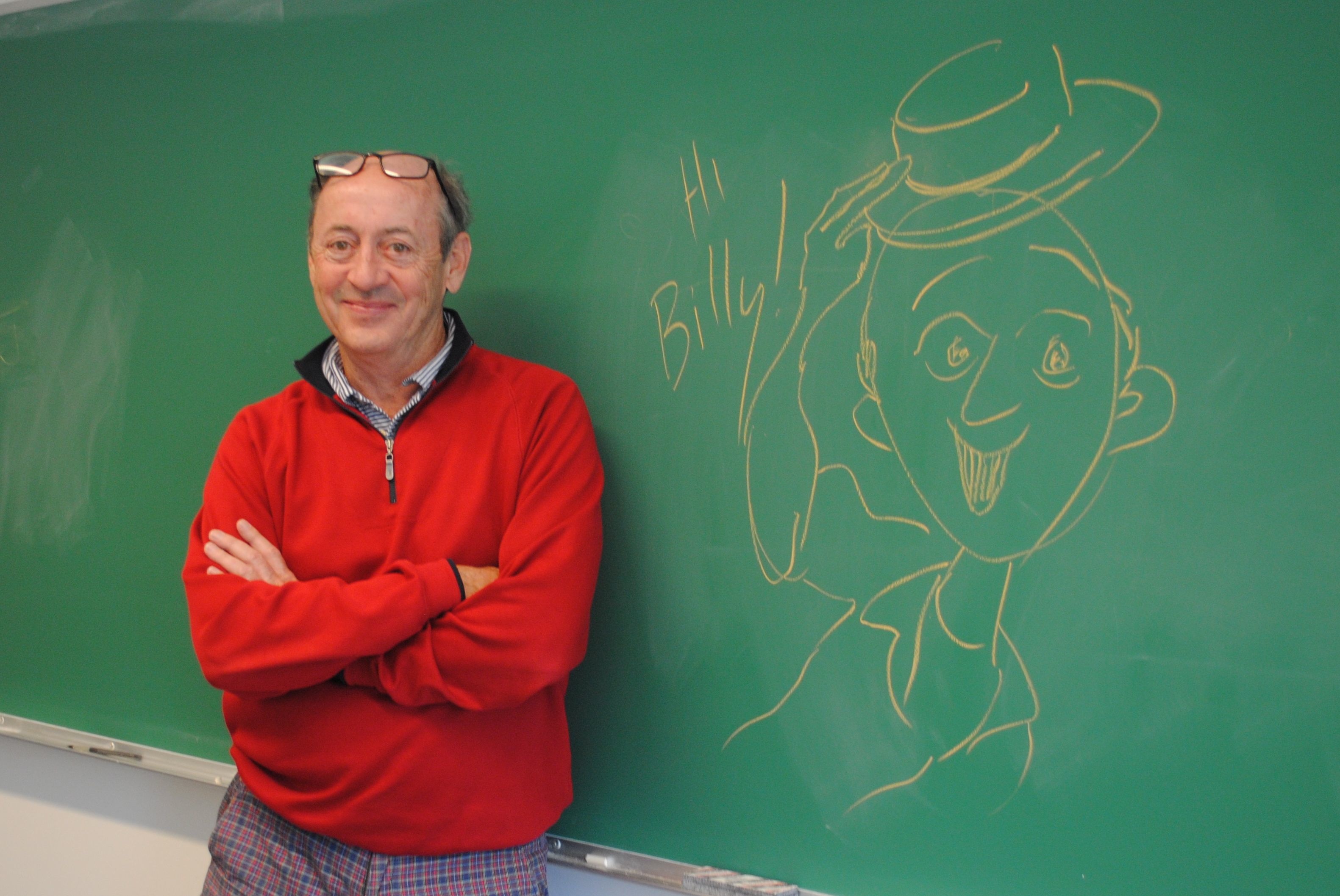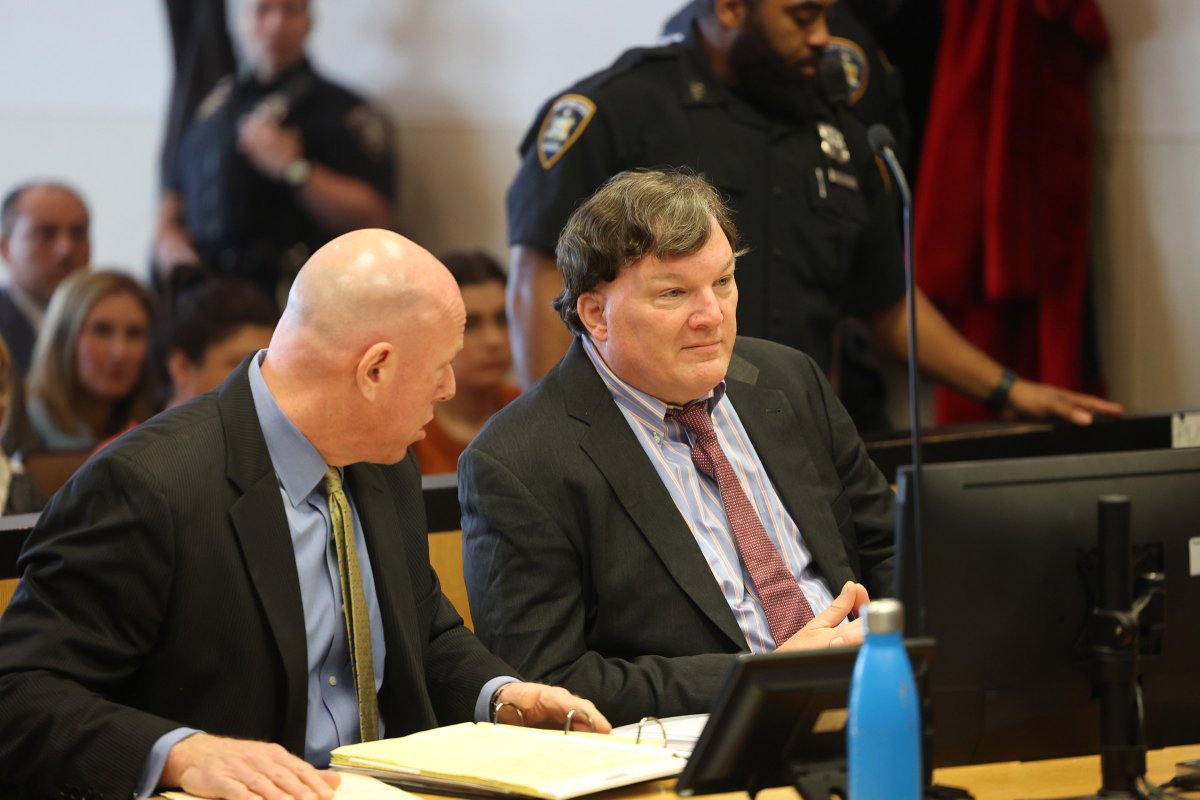Who’s Here: Billy Collins, Acclaimed Poet

Although Billy Collins did not publish his first “real” book of poetry (The Apple That Astonished Paris) until he was in his 40s, he has left himself enough time to make quite the impression on the poetry world. He is a household name in an age when most households do not read poetry, generating interest from both literary types and bored high-school students. His subsequent works (The Art of Drowning, Picnic, Lightning, Sailing Alone Around the Room, Nine Horses, The Trouble with Poetry, and Ballistics) are some of the best-selling poetry collections in memory. For the past 12 years, Collins has been coming out to the Southampton Campus in the summers to teach poetry workshops at the Southampton Writers Conference.
In 2001 (while he was in Southampton) the Library of Congress named Collins the Poet Laureate of the United States. This began his two-year tenure, putting him amongst the esteemed company of poets like Robert Penn Warren, Robert Pinsky, Stanley Kunitz, Louise Glück, Charles Semic, and most recently, Natasha Trethewey. Before this point, much of his recognition was due to his appearances on Garrison Keillor’s show “A Prairie Home Companion,” on National Public Radio. “I took off very late,” says Collins, “I didn’t really start moving until the mid-90s, then becoming poet laureate added a booster rocket.” Almost a decade after his tenure ended, the jets are still going and he continues to be loved by a wide range of readers.
Having had an entire career devoted to poetry before becoming “the most popular poet in America,” Collins is able to talk about his success with an unexpected level of humility. “When I started coming out to Southampton for the conference, I would stay on campus, now I stay in a beautiful guest house by the water. If there’s one advantage to being poet laureate, it’s that it gets you out of a small dorm room with a shared bathroom.” This sort of perspective shines through in Collins’s poems. He does not elevate himself above the reader, but instead finds a common ground in the rhythm of language. You will not find Collins writing from atop a lighthouse somewhere, but rather somewhere in the real world, like on the “four train on the Lexington Avenue line.”
This modesty is indicative of his entire philosophy about poetry in the modern age. “I think there is a huge potential readership for poetry in America,” he says, “and it remains a potential because people have a poetry phobia. This starts probably in high school because the teaching of poetry in the classroom becomes so associated with an interrogation. Students are put on the spot and asked to untie these knotty meanings. Poetry then becomes about anxiety, and not the anxiety of the poet (as it should be), but the anxiety of finding a poem’s meaning.”
Collins’ poems have often been described (and reduced) by their “accessibility.” As a result some colleagues have questioned his poetic legitimacy (“if you are easily understood then your poems must not be good”). In a Youtube sensation two years ago, a three-year old recited one of his most famous poems, “Litany,” from memory. Now, this kid had no idea what he was saying, but he seemed to find a more basic meaning in the “sound” of the poem. This is the type of meaning that Collins is able to evoke, and the same meaning that has eluded and frustrated many other poets. “I have made a lot of enemies among my fellow poets,” he says. “I was fretting about this once, until a friend of mine said to me ‘Isn’t that the point of writing, to make other writers miserable?’” “In the end,” he says, “you want to wear the title, you don’t want it to wear you.”
A New York native, Collins went to the College of the Holy Cross for his undergraduate degree and then later to the University of California at Riverside for his masters and doctoral degrees in Romantic Poetry. From there, he began a life-long career as a teacher, starting with this idea of himself as a “scholar/gypsy.” He taught at places like Caribbean College and the University of South Hawaii before coming full circle to New York. He is now a distinguished professor at Lehman College in the Bronx, where he has been teaching for over 30 years.
Collins’ time at the Southampton Conference also represents “return.” As a boy coming from a middle-class family in Queens, he spent several summers in Southampton. He pointed out that this was well before the place was “Ralph–Laurenized” and absorbed into that socio-cultural phenomenon known as “The Hamptons.” “The purity of my boyhood experience has given me conflicting views of the area,” he says. He remembers clamming with his father. They would step out the back door with a couple of clam rakes, walk out into the water, gather some clams, put them on ice and have them before dinner. After dinner they might go into town to catch a science-fiction movie like Destination Moon. It was much more of a down-and-dirty beach community, there was no sense of “décor.” “There’s so much natural beauty here,” he says, “you just don’t want to get it obscured by a cloud of Aston Martin smoke.”
The next time Collins started coming out to the East End was for the Writers Conference. “I remember passing this place called Southampton College,” he says, “I always fanaticized about teaching there—it seemed like an oxymoron, like Hollywood High.” Since Collins took his time becoming a famous poet, he was never really part of a “poetry society.” Teaching at the Writers Conference has provided him with that missed experience. “I’m really out there in the summer to engage with students in the workshops and engage with all the interesting writers like Frank McCourt, Alan Alda, Marsha Norman, Jules Feiffer, and Matthew Klam. It’s become a club out there. There’s a great deal of collegiality. Every summer there is a sense of reunion.” Although the Hamptons that Collins knew as a child may of changed, the sense of community he feels now amongst the writers and artists at the conference keeps him coming back year after year.



